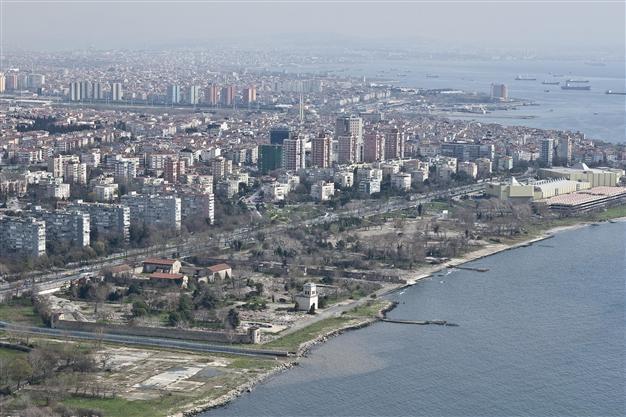Istanbul court grants stay of execution for development plans allowing construction in coastal area
Ömer ERBİL ISTANBUL / Radikal
 Istanbul’s 5th Administrative Court has granted stay of execution for development plans that would allow construction in a coastal area of the Ataköy neighborhood, following an expert report.
Istanbul’s 5th Administrative Court has granted stay of execution for development plans that would allow construction in a coastal area of the Ataköy neighborhood, following an expert report.The expert report described the 1/5000 and 1/1000 plans as “improper” with regard to the principles and methods of planning and public welfare, citing insufficient evaluations regarding the public use of the coastal area, earthquake risks, and the granting of permission to buildings of 70 meters’ height.
The court ruled for a stay of execution with a unanimity of votes, saying the development plans approved in 2012 complied with neither the law nor public health.
The stay of execution for the plans will continue until the case concludes, the ruling stated, adding that damage that is difficult or impossible to compensate could occur if the development plans continued.
The defendants in the case can appeal the decision within seven days, after which the verdict would likely be announced within one month.
The 412,000 square meter area was handed over to Turkey’s Housing Development Administration (TOKİ) on Dec. 14, 2001, with a protocol signed between Emlakba<nk and TOKİ. The area was then declared to be an area of tourism and was divided up into parts. Construction started after the area was sold and rented in a tender in 2009.
For the ongoing construction at the parcels numbered 160, 174 and 182 in Ataköy, Istanbul’s 9th Administrative Court had granted a stay of execution following an application by the Chamber of Architects for the cancellation of construction permits. The court later overturned its ruling for parcels 174 and 182. Parcel 160 is a historic site housing the Baruthane buildings and the İskender Çelebi Garden from the Ottoman era.
















